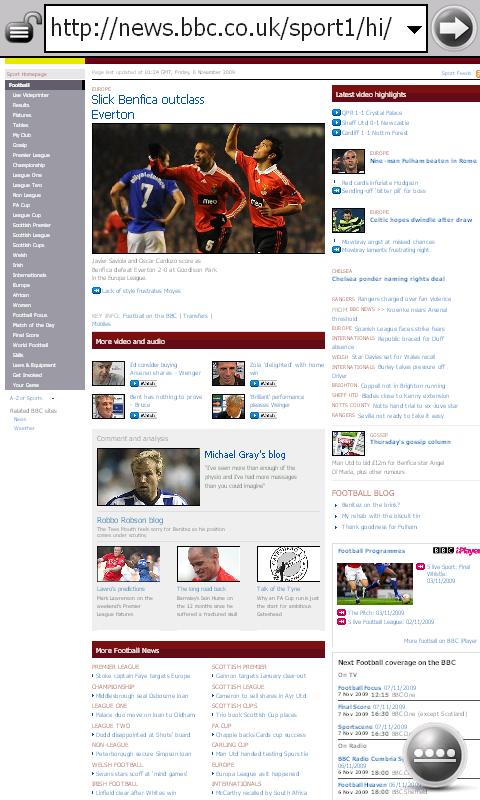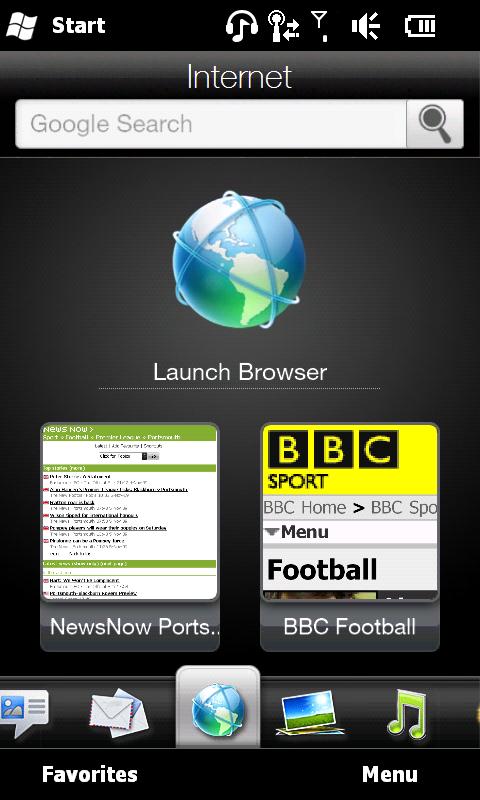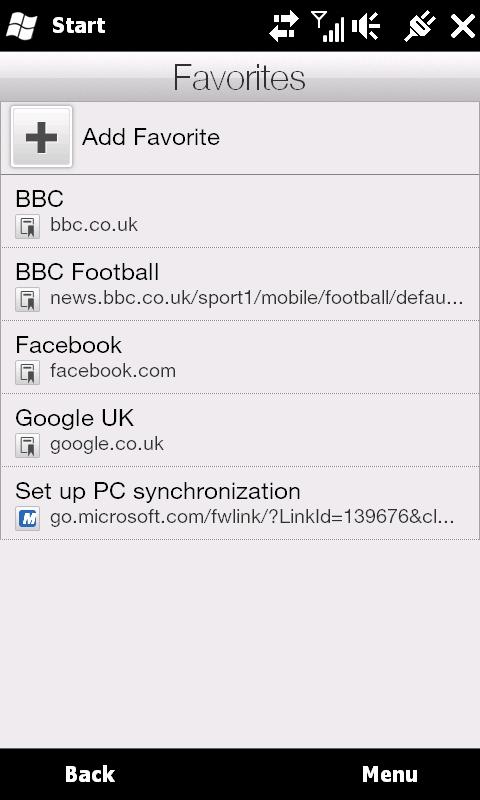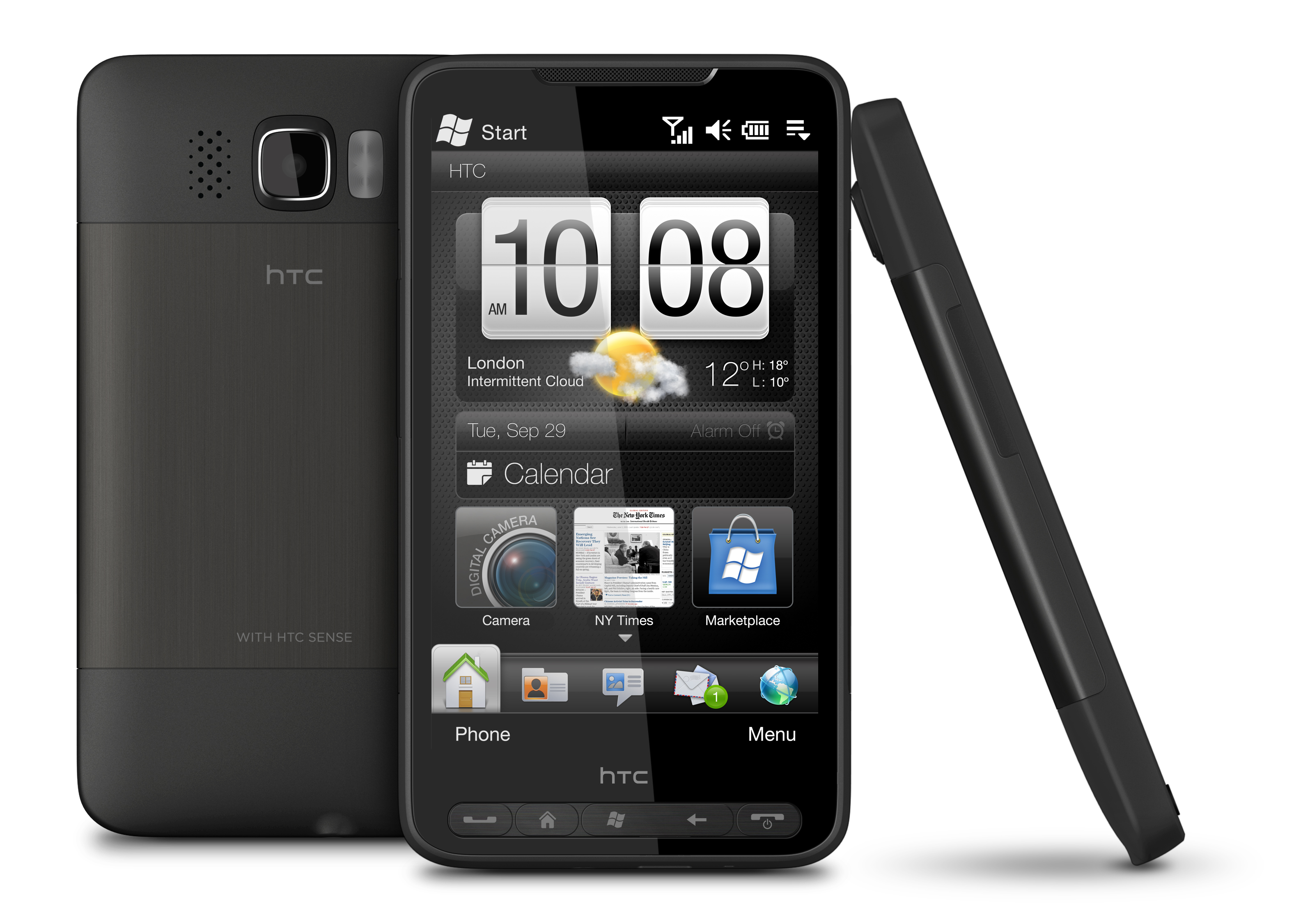Why you can trust TechRadar
Internet on the HTC HD2 is an interesting situation – there are actually two browsers baked right into the phone, Internet Explorer and Opera, with the option to download more like the alpha release of the first Firefox Mobile browser.
But while Opera is the default browser for all internet-related elements on the phone, when entering the Windows Mobile applications menu Internet Explorer is right at the top, and Opera is all the way at the bottom of the list.
And the difference between the two is pretty major as well – IE will support Flash video but not multi-touch browsing, and Opera vice versa.

We preferred using Opera for internet usage on the HD2, but we'll quickly talk through the highlights of IE.
The main advantage, as we just mentioned, is the ability to watch Flash video on your mobile (which HTC has already shown as possible on the Hero).
However, while some sites will let you watch web videos, a great number of others won't. The greatest duality is shown on the BBC main site – BBC iPlayer will play but without sound and picture, and navigating there took ages.
The BBC sports site led to a better experience – video turned up on cue and played smoothly. However, don't expect to do anything else while watching it, such as making it full screen or zooming in, as this will just bring the phone to a grinding halt.
IE also has some other bugs beyond Flash video – for instance it's slow to load web pages even over Wi-Fi (it felt more like dial up than anything else) and the only ways to zoom in and out are either to tap and wait, or call up the zoom bar, neither of which are that intuitive.
That said, it did respond well under the finger when moving around web pages, and the easy-to-hit menu icons certainly are an improvement (and should be the way Microsoft goes about everything while it's developing Windows Mobile 7).

Opera is a much more intuitive experience though, and that's the reason we're glad it's the default browser.
It's a lot more basic, with limited functionality compared to IE, but we like that for browsing. Using it over 3G is quick, and over Wi-Fi it easily keeps up with (and often outstrips) the iPhone in terms of page rendering.

The only advanced feature the Opera browser has is the ability to save pages to read back later without needing to connect, but that's used on so many phones (even non-smart ones) that it's not necessarily a headline grabbing feature any more.
You can add favourite bookmark icons to the internet tab on the phone, which also makes it easier to head to your favourite sites. However, there's no push internet system here, as we've seen on previous Windows Mobile phones from HTC, so there was no automatically updated content to view when out of signal.
And of course, we can't help but enjoy multi-touch on a decent capacitive screen – every time we play with it we have to tip our hat to the iPhone for bringing an experience this good over two and a half years ago.
Overall, internet browsing on the HD2 was a really pleasant experience. The sheer wealth of options on offer made it a decent proposition, and while both Opera and Internet Explorer have some slight niggles both are perfectly adequate mobile browsers – it just depends what you like from one.

Gareth has been part of the consumer technology world in a career spanning three decades. He started life as a staff writer on the fledgling TechRadar, and has grew with the site (primarily as phones, tablets and wearables editor) until becoming Global Editor in Chief in 2018. Gareth has written over 4,000 articles for TechRadar, has contributed expert insight to a number of other publications, chaired panels on zeitgeist technologies, presented at the Gadget Show Live as well as representing the brand on TV and radio for multiple channels including Sky, BBC, ITV and Al-Jazeera. Passionate about fitness, he can bore anyone rigid about stress management, sleep tracking, heart rate variance as well as bemoaning something about the latest iPhone, Galaxy or OLED TV.
